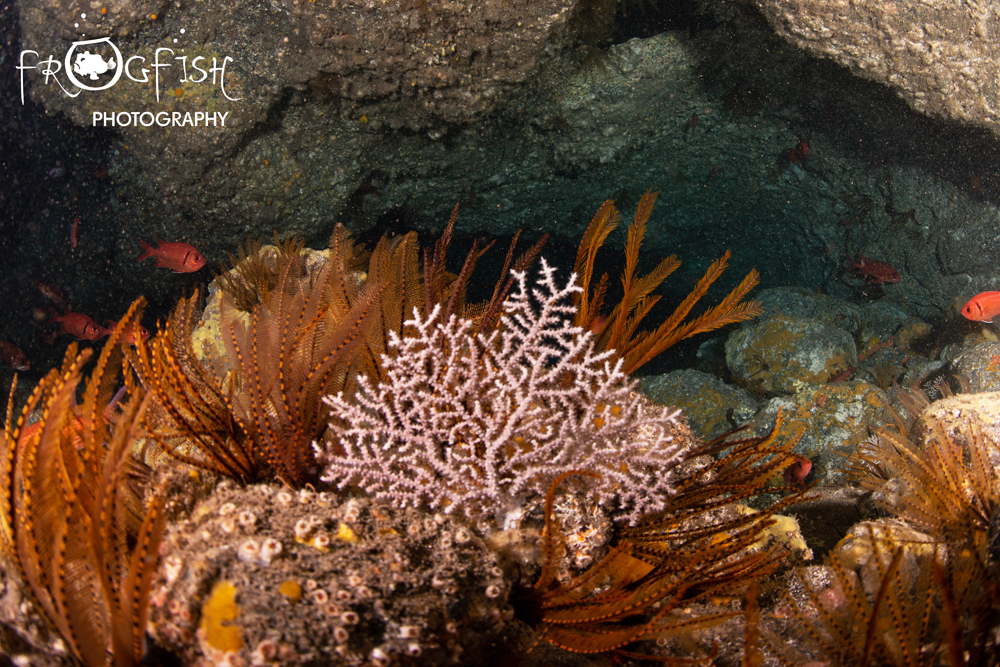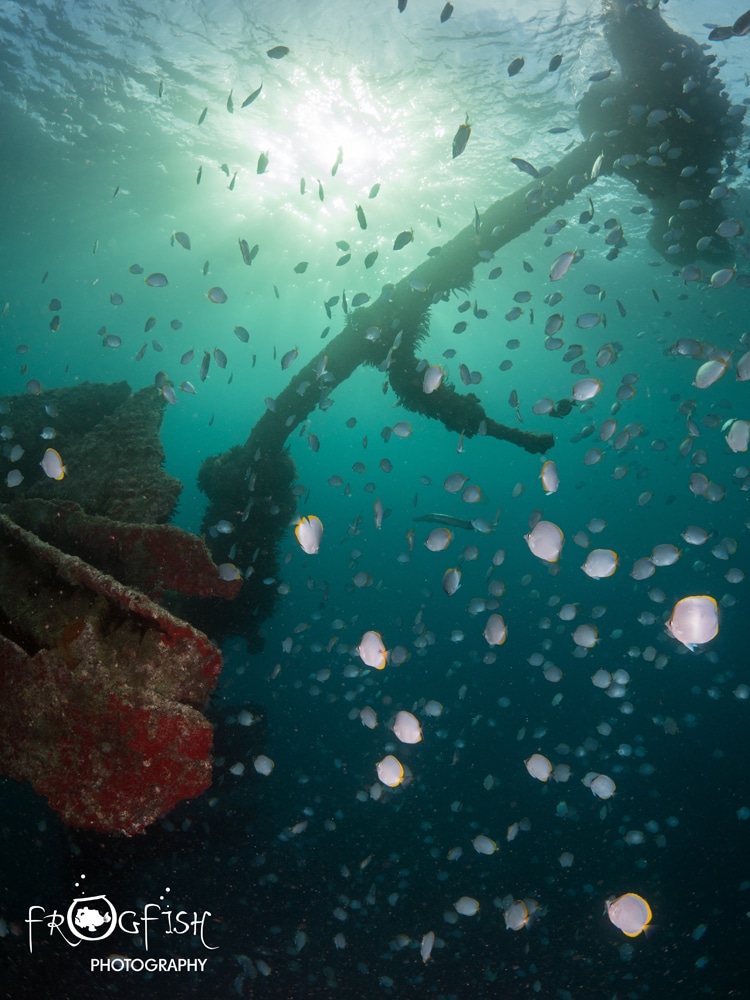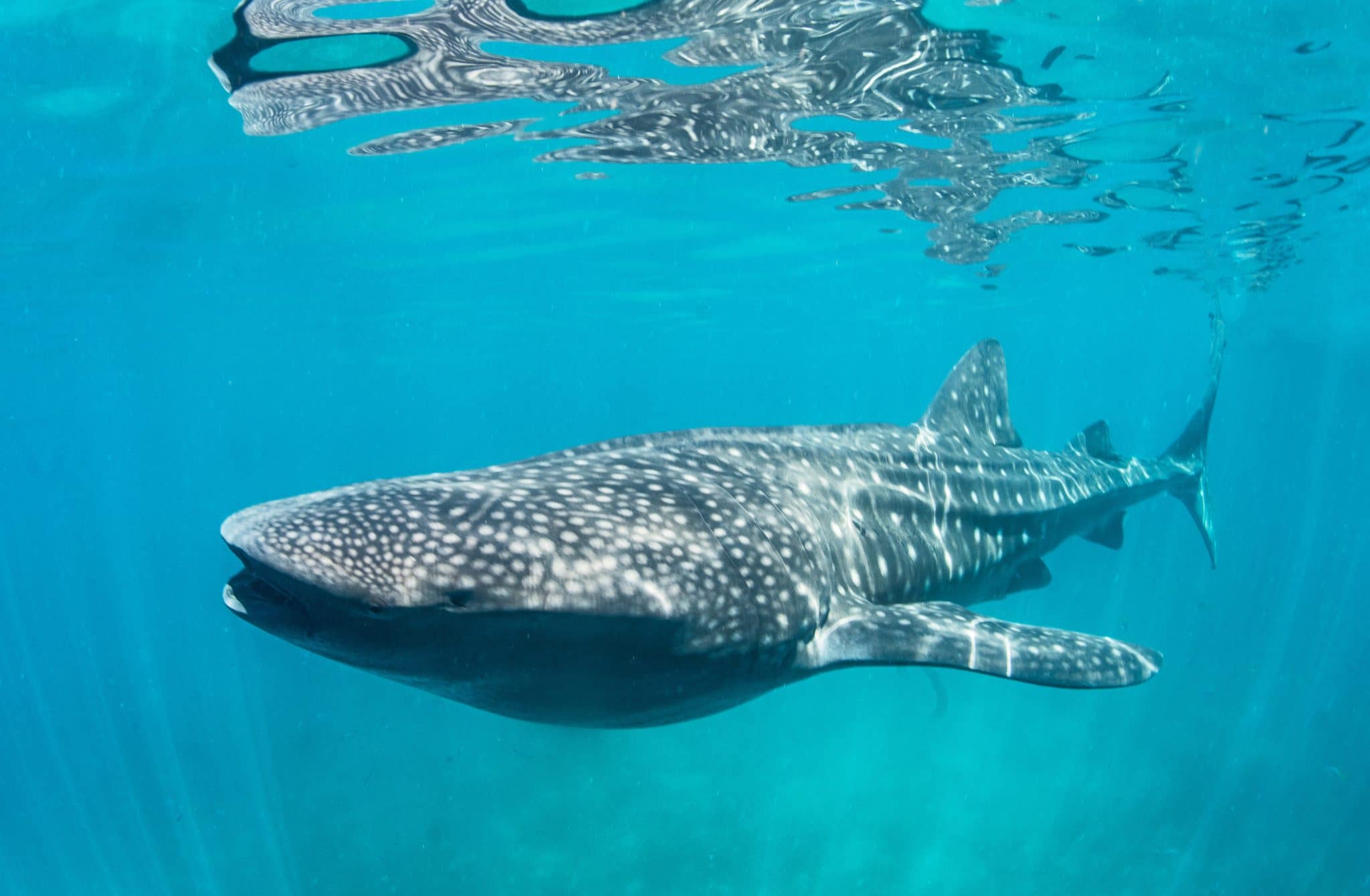Marine Life & Conservation
St Helena Recognised as an International marine Hope Spot

International marine conservation organisation Mission Blue officially recognised St Helena’s Marine Protected Area as a Hope Spot. Hope Spots are recognised as special places, being one of a kind areas of ocean that are scientifically identified for their uniqueness, and most importantly their community’s contribution and efforts in maintaining or improving global ocean health.
St Helena was nominated as a Hope Spot by two champions, the Director of the St Helena National Trust Helena Bennett and Director of Global Policy at Georgia Aquarium Dr Dayne Buddo. This nomination was supported by St Helena Government.
St Helena is honoured that Mission Blue has assessed St Helena’s efforts to safeguard our ocean and recognised us as a Hope Spot.
It also means that St Helena joins an ocean network of 156 Hope Spots around the world. These cover a combined near 60,000,000km2 of ocean, stretching from the Antarctica to the Arctic, and includes our sister island of Ascension.
This recognition follows a significant 20 year journey for St Helena in understanding and protecting the Island’s marine environment. It began with projects initially assessing whales, dolphins and birds, as well as undertaking basic fisheries science to build a baseline of knowledge and understanding. In 2012 St Helena Government started to consider a potential Marine Protected Area (MPA) designation. Between 2012 and 2016 various scientific programs were undertaken in collaboration with Island users and stakeholders, considering the social impacts of designation.
This ultimately led to 100% of St Helena’s near 450,000km2 Exclusive Economic Zone (EEZ) being designated as an IUCN Category VI sustainable use MPA in 2016, along with the publication of the Island’s first Marine Management Plan.
By comparison, only 8% of the world’s oceans are currently designated as MPAs, with under 3% being highly protected. This is set amid a backdrop where are our oceans have never been more at threat, from challenges including the impacts of climate change, ocean acidification, pollution and illegal fishing.
Following designation of the MPA, significant work has been ongoing to improve the understanding of the territory’s marine environment. This has been made possible by working closely with a variety of external partners and funders, such as the UK Government Darwin Initiative, the Blue Marine Foundation, the International Pole and Line Foundation and Georgia Aquarium.
Since 2016, St Helena has been fortunate to be a part of the UK Government’s Blue Belt Programme, which supports the Overseas Territories with the protection and sustainable management of their marine estates. The programme has provided significant funding and capacity to St Helena. This has catapulted St Helena’s science and research, in turn providing the evidence that underpins the MPAs management measures and the newly implemented 2023 Marine Management Plan.
In 2018, the St Helena National Trust with support from the Blue Marine Foundation, extended its advocacy of the Island’s natural heritage to include marine based conservation, education and outreach. The trust continues conservation monitoring of key marine species such as whale sharks and seabirds, promoting sustainable fisheries and the reduction of plastics and marine debris, contributing further evidence to underpin the Marine Management Plan.
This work, combined with St Helena’s distinctive features, has now been assessed by a reputable internationally recognised organisation who are to call St Helena a Hope Spot.
Many MPAs are designated in an effort to restore that area to a functional and thriving condition as a result of previous damage. St Helena’s marine environment remains in near pristine condition, and the community of St Helena is rightly proud to keep watch over an area that provides inspiration to others.
St Helena’s unique characteristics, most notably its remoteness and historic limited human pressures, has not only created unique habitats but also distinct assemblages of species. St Helena’s MPA attracts highly migratory and globally significant animals such as tuna, whale sharks and humpback whales.
St Helena has undertaken every reasonable effort within its control to ensure marine uses limit human pressure in order to deliver sustainability, even as marine tourism becomes more popular in reflection of St Helena’s amazing natural environment. For example:
- One by one fishing practices are permitted for certain key species, and unselective fishing methods are prohibited.
- Total allowable catch limits and size limits are in place.
- Robust wildlife and habitat interaction rules have been put in place, balancing the education and enjoyment of marine users against the need to safeguard our habitats and species for the future.
Dr Sylvia Earle, founder of Mission Blue, said:
“This marine protected area and new hope spot of nearly half a million square miles now faces pressures largely outside its control from rapidly changing climate, invasive species and pollution. By becoming a Hope Spot, St Helena can act as a beacon to the rest of the world. Although geographically isolated, it is deeply ecologically connected to many distant realms, and indeed, other Hope Spots.”
Director of St Helena National Trust, Helena Bennett, said:
“The ocean has a way of enchanting us, capturing our imagination and intriguing us with mysteries of the unexplored. Our Island and its surrounding waters are steeped in our culture and traditions, and have played a massive role in our history’s timeline since our island’s discovery in 1502, evolving our way with a sense of nostalgia and a feeling of belonging and home.”
UK Foreign, Commonwealth and Development Office Minister David Rutley said:
“St Helena is home to a range of unique marine species and habitats creating breath-taking coastal and underwater sceneries. I’m proud to see St Helena’s MPA designated as a ‘hope spot’, this speaks to the fantastic working collaborations St Helena has with its local community, Government and NGOs in creating ocean conservation consciousness through sustainable use.”
“The UK’s landmark Blue Belt Programme has also enabled positive lasting change for the island, through its facilitation of a range of support covering innovative science initiatives such as, the deployment of a network of underwater cameras to help observe and quantify ocean wildlife, a purpose-built marine laboratory to ensure evidence-based management of habitats and species is undertaken supported by a robust policy, legislation, education and enforcement. An exemplar of creating positive change for the protection of the marine environment for the rest of the world”.
Minister for Environment, Natural Resources and Planning, Christine Scipio, said:
“As a community we are rightly proud of our unique marine environment, which is reflected in how we approach our stewardship of it. We’ve spent the last 20 years developing our knowledge of our special waters and ensuring we only permit the most sustainable of practices within our MPA. We’re delighted that Mission Blue has recognised St Helena as a Hope Spot, and hope that we can act as an example to the rest of the world of what can be achieved despite your size and limited resources.”
Graham Sim, former Fisheries Officer and long term advocate for St Helena’s marine environment, said:
“The thing about it is, and I don’t know why, there is something about the ocean that I have always been attracted to. St Helena is in a unique position and has come a long way with the conservation and protection of the marine environment, with the local younger generations being much more aware of the need to protect the ocean, giving us all hope for the future. But, there is a lot that still needs to be done here, and elsewhere, and we need to keep focused on what is required to protect our beloved oceans.”
More information about the Hope Spot network can be found online at www.missionblue.org/hope-spots.
Marine Life & Conservation
Paul Watson Released as Denmark Blocks Japan’s Extradition Bid

Renowned anti-whaling activist Paul Watson has been released from custody in Greenland after spending five months in detention. Denmark’s Justice Ministry rejected Japan’s request for his extradition, citing insufficient guarantees that his time already served in custody would be credited against any potential sentence.
The 74-year-old Canadian-American was arrested on July 21 in Nuuk, Greenland’s capital, when his ship docked to refuel. His arrest was based on a 2012 Japanese warrant related to a 2010 encounter in Antarctic waters. Japan alleged Watson obstructed operations and caused damage to a whaling research ship during efforts to disrupt illegal whaling. Watson has consistently denied these claims, maintaining his commitment to marine conservation.
Denmark, which oversees extradition matters for Greenland, concluded that while the legal conditions for extradition were met, the lack of assurances from Japan regarding time-served credit made extradition untenable.
In a video shared by his foundation, Watson expressed gratitude and relief, saying, “After five months, it’s good to be out… and good to know they’re not sending me to Japan.” He added that the most difficult part of his time in custody was being separated from his two young sons.
Watson is a pioneering figure in marine conservation, known for founding the Captain Paul Watson Foundation in 2022 after decades of activism with the Sea Shepherd Conservation Society. His bold efforts to defend marine life have earned him widespread support, including from celebrities and conservationists. His work has also been featured in the acclaimed reality TV series Whale Wars.
Watson’s lawyer, Jonas Christoffersen, praised the decision, stating, “We are happy and relieved that Paul Watson is now free.” He added that Watson is eager to reunite with his family and continue his vital work.
The arrest occurred while Watson’s vessel, the M/Y John Paul DeJoria, was en route to the North Pacific with a team of 26 volunteers to intercept a Japanese whaling ship. His foundation described the arrest as politically motivated and emphasized that Watson’s actions were focused on ending illegal whaling practices.
Japan resumed commercial whaling in 2019 after leaving the International Whaling Commission, asserting that whale meat is a cultural tradition. Conservationists, however, continue to challenge these practices, highlighting their impact on marine ecosystems.
Despite the challenges, Watson remains steadfast in his mission to protect marine life and bring attention to whaling practices. His dedication to ocean conservation has made him a globally respected advocate for the environment.
Marine Life & Conservation
12 Days of Zero-Waste Fish-mas

This holiday period, the Marine Conservation Society, the UK’s leading ocean membership charity, invites you to make some simple changes to eating fish this Christmas to help our seas.
Dr Kenneth Bodles, Head of Fisheries and Aquaculture at the Marine Conservation Society, said, “During the festive season, our consumption increases, but so does waste. Sustainability isn’t just about where food comes from – it’s also about how you use it. By reducing waste and making the most out of your seafood, you’re not only taking steps to be more ocean-friendly, but can also help to cut costs during what is often one of the most expensive times of the year”.
The Marine Conservation Society has compiled twelve tips on how to consume seafood sustainably with zero-waste this Christmas:
Buy whole fish instead of fillets
Instead of fillets, consider buying whole fish such as salmon, hake, or lemon sole. By adopting a “nose to tail” approach with cooking, whole-baked fish not only feeds a crowd, but also helps to minimise waste and maximise sustainability by using up every part of the animal, including bones, skin, and fat.
Make fish stock
Leftover fish bones or shells can be put to good use by boiling them to make a nourishing fish stock or bisque. This can be frozen and preserved for later use and makes for a flavourful base in a soup.
Make your own fish pâté
Avoid waste by turning leftover fish, such as smoked mackerel or salmon, into a delicious pâté by blending with cream cheese and lemon. Perfect when paired with crackers.
The sustainability of salmon and mackerel varies depending on where and how it is caught or farmed. For more information on green-rated options, check the charity’s Good Fish Guide.
Buy frozen
By purchasing seafood that is frozen or vacuum-packed, this helps to reduce waste by extending the shelf life of your food.
Fish pie
If you’re wondering what to do with leftover cooked fish, why not opt for a classic fish pie with mashed potatoes, leeks, and a cheesy sauce? A sure crowd pleaser on Boxing Day.
Use the head
Don’t forget the fish head! The meat is incredibly tender and flavourful. The charity recommends a cod’s head curry or recreating Fallow’s renowned cod’s head in siracha butter.
By stretching your ingredients further, not only is this a more sustainable way to enjoy seafood, but also cost-effective by repurposing leftovers and cooking creatively.
Boxing Day brunch
Mix leftover kippers or smoked salmon with scrambled eggs for a tasty, zero-waste, Boxing Day brunch.
For best choice, make sure you buy kippers, or herring, from the North Sea and the North Irish Sea.
Zero-waste storage
A top tip from the Marine Conservation Society to avoid waste is freezing fish offcuts to save for future use.
Crisp up the skin
Even leftover fish skin can be turned into a quick savoury snack by crisping it up in an air fryer with a little olive oil and salt.
Anchovies two ways
Leftover anchovies can either be blended with butter to make a delicious anchovy butter or tossed into pasta for a hit of umami flavour.
The charity recommends opting for anchovies caught in the Bay of Biscay for best choice.
Fishcakes
For an easy, zero-waste meal, leftover seafood trimmings can be mixed with mash and fried in breadcrumbs to make fishcakes.
Pickled mussels
Try pickling mussels in 1:1 vinegar and water, with a dash of sugar for a sustainable, zero-waste snack that can be enjoyed well beyond the festive season.
Mussels farmed in the UK are a seafood superhero. Grown using low-impact methods and harvested by hand, they get all the food they need from the sea around them. This makes them one of the most sustainable, ocean-friendly, and cost-effective seafood options.
Players of People’s Postcode Lottery have raised £6.6M towards the Marine Conservation Society’s vital work in making seafood more sustainable.
Laura Chow, Head of Charities at People’s Postcode Lottery, said: “Fish is a festive favourite for many, but making sustainable choices when it comes to how we buy and eat seafood makes all the difference for our ocean. Support from players of People’s Postcode Lottery has helped the Marine Conservation Society further its sustainable seafood work, so that we can all enjoy healthier, better protected seas.”
The Marine Conservation Society encourages you to make sustainable seafood choices a year-round habit, not just for Christmas. To check how sustainable the seafood on your plate is, you can visit the charity’s Good Fish Guide. The Guide helps consumers and businesses identify the most sustainable seafood using a simple traffic light system, based on where and how species are caught or farmed. Green is the best choice, amber means improvements are needed, and red indicates fish to avoid buying.
Zero-waste gift idea
Why not embrace a zero-waste Christmas by gifting a membership to support marine conservation? It’s a meaningful, low-waste gift that helps protect our ocean for generations to come. Memberships start from as little as £5 a month – the price of a sandwich and drink from your local coffee shop.
Find the latest sustainable seafood advice for wild-caught and farmed seafood on the Good Fish Guide, downloadable to your phone from www.mcsuk.org/goodfishguide.
-

 News3 months ago
News3 months agoIconic SS United States to become the World’s Largest Artificial Reef
-

 Blogs2 months ago
Blogs2 months agoScubaverse Christmas Gift Guide 2024: Day 4
-

 News2 months ago
News2 months agoSanta Divers take the Plunge for Charity
-

 Blogs2 months ago
Blogs2 months agoScubaverse Christmas Gift Guide 2024: Day 1
-

 News3 months ago
News3 months agoDiscover Turquoise Divers and Media Luna Beach & Dive Resort: A Premier Diving and Relaxation Destination in Roatan
-

 Blogs2 months ago
Blogs2 months agoScubaverse Christmas Gift Guide 2024: Day 5
-

 Blogs2 months ago
Blogs2 months agoScubaverse Christmas Gift Guide 2024: Day 2
-

 News3 months ago
News3 months agoToucan Diving at Plaza Beach and Dive Resort Bonaire Introduces PADI Mermaid Training

















